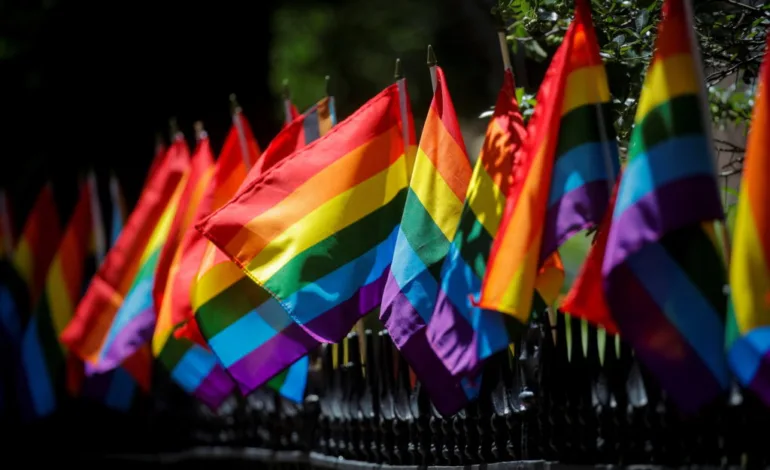
Rainbow Capitalism
In recent years, the marketing industry has seen a significant shift towards inclusivity, with companies recognizing the importance of engaging with diverse communities. One prominent example is the LGBTQIA+ community, which has been increasingly targeted by brands aiming to demonstrate their commitment to inclusivity and social responsibility. This phenomenon, often referred to as “rainbow capitalism” or “pink capitalism,” involves businesses leveraging LGBTQIA+ symbols and themes to tap into the economic potential of this community. This article delves into the implications of rainbow capitalism, its benefits, criticisms, and the underlying complexities.
The Economic Potential of the LGBTQIA+ Market
The LGBTQIA+ community holds substantial economic power, with an estimated market size of £6 billion per year in the UK and $900 billion in the US. This presents a lucrative opportunity for businesses to engage with this community. For instance, American Airlines saw a 900% increase in earnings from the LGBTQIA+ community over five years after forming a dedicated advertising team, underscoring the potential profitability of inclusive marketing strategies.
The Role of Representation
Brands are increasingly recognizing the importance of making marginalized communities feel seen and heard. Representation in advertising is a crucial aspect of this. By including LGBTQIA+ characters and themes in their campaigns, companies can foster a sense of belonging and validation among LGBTQIA+ consumers. However, this representation needs to be genuine and not merely a token gesture.
Criticisms and Concerns
Despite the potential benefits, rainbow capitalism is not without its criticisms. One major concern is the authenticity of corporate support for LGBTQIA+ rights. Critics argue that many brands only show support during Pride Month and fail to maintain this commitment throughout the year. This can lead to perceptions of inauthenticity and tokenism. For instance, Nielsen data reveals that only 1% of ads include LGBTQIA+ characters or topics outside of Pride Month.
The Concept of Good Corporate Citizenship
Good corporate citizenship involves companies acting ethically and socially responsibly, which includes supporting LGBTQIA+ rights and creating an inclusive workplace. Internal policies, such as anti-discrimination measures and domestic partnership benefits, are crucial in this regard. For example, 96% of Fortune 100 companies prohibit discrimination based on sexual orientation, compared to only 57% of US states.

The Impact of Corporate Advocacy
Corporations have historically played a role in advancing LGBTQIA+ rights. Internal LGBTQIA+ employee resource groups (ERGs) have been instrumental in lobbying for anti-discrimination policies and benefits for same-sex partners. This advocacy has contributed to broader social change, such as the push for marriage equality. However, the extent to which corporate support translates into meaningful progress for all members of the LGBTQIA+ community is debatable.
Reputational Risks and Backlash
There is potential for backlash against corporate Pride campaigns from both those who feel the support is insincere and those who oppose LGBTQIA+ rights. Companies must navigate these challenges carefully to avoid alienating any key audience segments. Controversies surrounding corporate Pride campaigns and the concept of “pink capitalism” highlight the delicate balance brands must strike.
Collateral Damage and Marginalization
“Collateral damage” is a significant concern when discussing rainbow capitalism. While some LGBTQIA+ individuals may benefit from corporate support, others, particularly those on the fringes of society, may be left behind. For instance, queer people of color and those with disabilities often face higher rates of discrimination and marginalization. This underscores the need for a more inclusive approach that considers the diversity within the LGBTQIA+ community.
The Role of Alcohol Brands
The historical association between queer culture and alcohol brands has been both supportive and problematic. While these brands have been early supporters of LGBTQIA+ visibility, this relationship has also contributed to higher rates of alcohol and substance abuse within the community. Queer people are more likely to drink alcohol and to drink excessively than the population as a whole, leading to higher rates of alcohol-related health issues.
Rainbow capitalism, while presenting opportunities for visibility and economic engagement, comes with its complexities and criticisms. Authenticity, inclusivity, and a commitment to genuine support beyond mere tokenism are crucial for businesses aiming to engage with the LGBTQIA+ community meaningfully. As corporations continue to navigate this landscape, it is essential to consider the broader impact of their actions on all members of the LGBTQIA+ community, ensuring that support is both inclusive and sustained.



